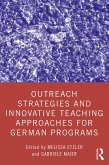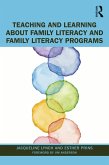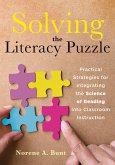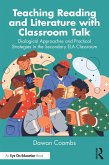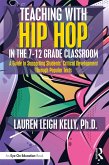A step-by-step guide to developing equitable literacy instruction by adapting curriculum to support diverse learners.
In Teaching with Literacy Programs, Patricia A. Edwards, Kristen L. White, Laura J. Hopkins, and Ann M. Castle present a model that allows educators to address educational inequity through the critical and adaptive use of existing literacy curriculum materials. In this accessible work, they advise educators on ways to combine common classroom materials, such as basal readers and core reading programs, with instructional practices that provide high-quality, responsive instruction to all students.
Edwards, White, Hopkins, and Castle credit literacy instruction as a core part of overall educational equity, and they recognize the crucial role that educators play in translating materials into instruction that benefits all learners. Here they offer teacher education in support of this essential role, deftly guiding educators through a four-part development process, CARE, an acronym for cultivating critical consciousness, analyzing materials, reconstructing curricula, and evaluating instruction reflectively to advance equity. Built upon culturally relevant, sustaining, and antiracist pedagogy, CARE enables teachers to provide literacy instruction that meets the range of needs and performance levels in classrooms, supporting students in attaining academic achievement, cultural competence, and critical consciousness.
The approach outlined in this work, which can be put into immediate practice, helps educators to provide literacy instruction that builds on students' multiple literacies and reduces educational inequity.
In Teaching with Literacy Programs, Patricia A. Edwards, Kristen L. White, Laura J. Hopkins, and Ann M. Castle present a model that allows educators to address educational inequity through the critical and adaptive use of existing literacy curriculum materials. In this accessible work, they advise educators on ways to combine common classroom materials, such as basal readers and core reading programs, with instructional practices that provide high-quality, responsive instruction to all students.
Edwards, White, Hopkins, and Castle credit literacy instruction as a core part of overall educational equity, and they recognize the crucial role that educators play in translating materials into instruction that benefits all learners. Here they offer teacher education in support of this essential role, deftly guiding educators through a four-part development process, CARE, an acronym for cultivating critical consciousness, analyzing materials, reconstructing curricula, and evaluating instruction reflectively to advance equity. Built upon culturally relevant, sustaining, and antiracist pedagogy, CARE enables teachers to provide literacy instruction that meets the range of needs and performance levels in classrooms, supporting students in attaining academic achievement, cultural competence, and critical consciousness.
The approach outlined in this work, which can be put into immediate practice, helps educators to provide literacy instruction that builds on students' multiple literacies and reduces educational inequity.
Dieser Download kann aus rechtlichen Gründen nur mit Rechnungsadresse in A, D ausgeliefert werden.




